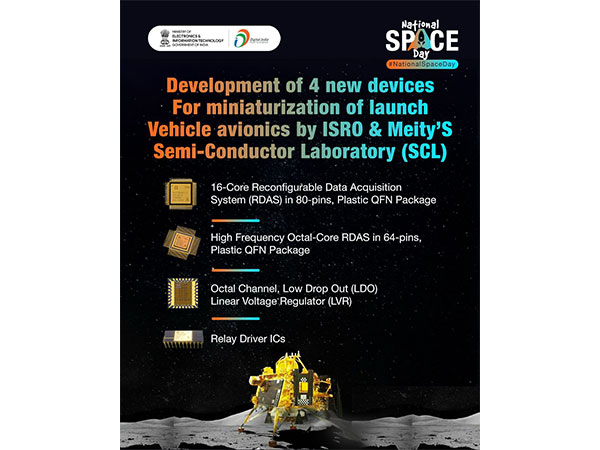ISRO's Indigenous IC Innovations Propel India's Space Ambitions
ISRO, in partnership with the Ministry of Electronics and Information Technology, has developed four indigenous integrated circuits to advance India's space technology. The new ICs will reduce dependency on imports, cut costs, and facilitate more compact avionics for launch vehicles. This innovation marks a significant boost for India's burgeoning space sector.

In a significant stride towards self-reliance in space technology, the Indian Space Research Organisation (ISRO), alongside the Ministry of Electronics and Information Technology's (MeitY) Semi-Conductor Laboratory (SCL), has unveiled four indigenous integrated circuits (ICs) designed to enhance the avionics of India's launch vehicles. These advancements underscore a groundbreaking phase in Indian space exploration.
The innovative ICs are expected to decrease reliance on foreign electronics, reduce launch expenses, and enable more compact avionics hardware. Since 2009, SCL Chandigarh has been at the forefront, building world-class space processors. The VIKRAM1601 processor, pivotal to ISRO's launches, exemplifies India's technological prowess in space endeavors.
Milestones continue as the 32-bit microprocessors, VIKRAM3201 and KALPANA3201, were handed over to ISRO on March 5, 2025, marking a quantum leap in India's space tech. The VIKRAM3201 is India's maiden fully 'Make-in-India' 32-bit processor, showcasing resilience in extreme launch conditions. Meanwhile, KALPANA3201, named after space pioneer Kalpana Chawla, reaffirms India's commitment to indigenous innovation.
(This story has not been edited by Devdiscourse staff and is auto-generated from a syndicated feed.)










